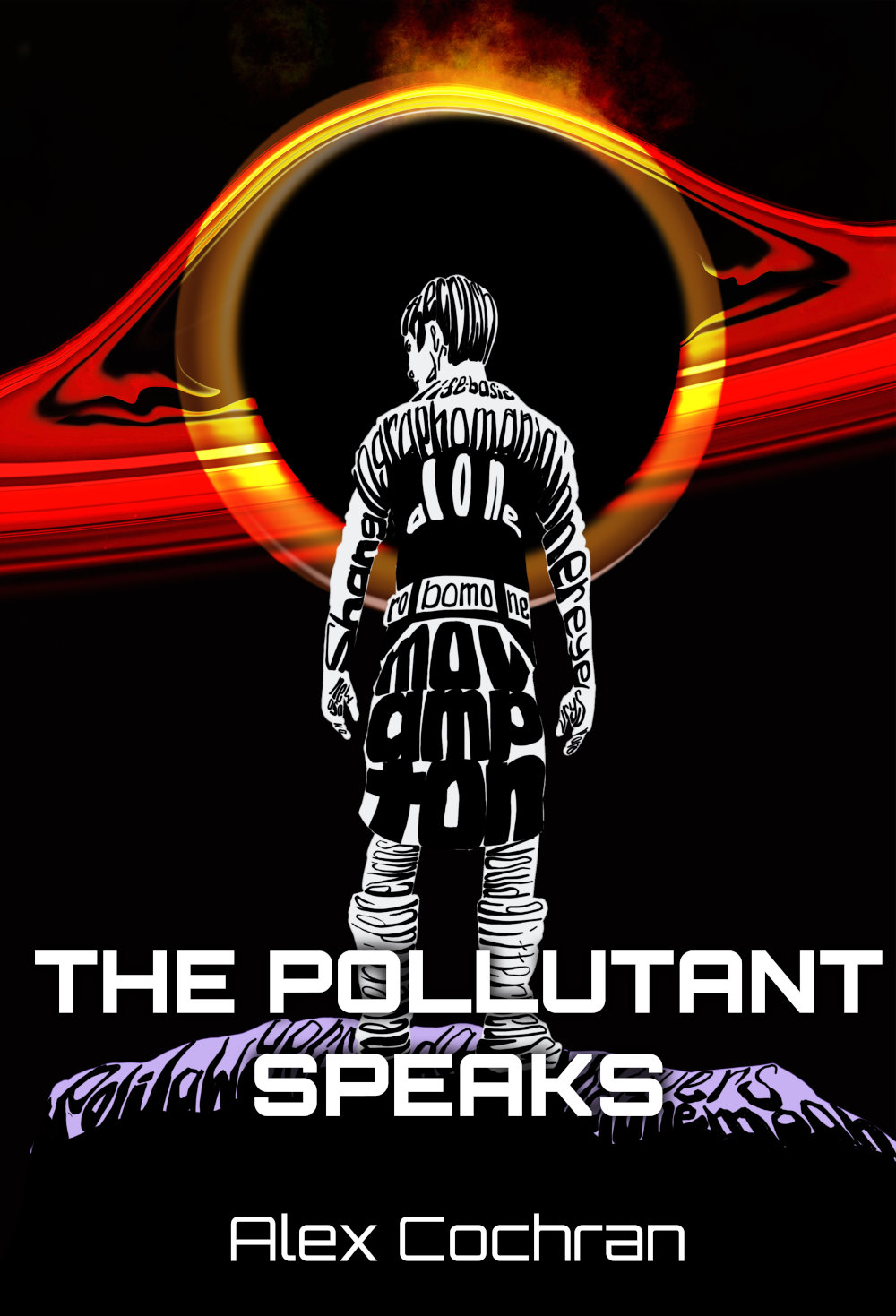How The Pollutant Spoke
Alex Cochran
Up until a few years ago, writing was an occasional itch. I picked it up and wrote screenplays, short stories and essays whenever the compulsion came over me. That all changed with a reading of Howl and seeing in my mind's eye the story's protagonist sitting outside a hospital.
When I wrote the first draft of The Pollutant Speaks, I wanted to bring together some critical factors in my life. I was deeply influenced by discovering that poem by Allan Ginsberg (remember I'd spent a life in science and engineering so don't judge me too harshly for not having found it sooner) and The Leaves of Grass by Walt Whitman. I loved the pathos and dystopian worldview that these poets summoned up. Mixing prose and poetry has never been popular, though—even in Tolkien, it's the part everyone skips (I'm sure there are the virtuous few). See this hit list of exceptions under prosimetrum.
I wanted to blend this into my long-term love of subtle science fiction that China Mieville (which he classes as “weird fiction”), Neal Stephenson, Ursula Le Guin and Ray Bradbury all lean towards. SF with a tangible flavour, 'the search for the far metaphor' as Bradbury once said, is what excites me. I also wanted to provide a ray of hope for all the people I saw suffering from the pressure of work, life and the human condition. It seemed that everywhere I looked, someone was getting broken under the wheel of the world, and this developed into the idea of the “Crush” in The Pollutant Speaks, which has similarities to Moloch, the people-eating bank in Ginsberg's Howl.
The final goal was to tell an adventure about picking ourselves up, getting out there and getting a good look at what might be just beyond the horizon.
It became clear that just tinkering with the first draft wouldn't cut it: I'd have to put in some tough slog and a lot of missteps. I had workshopped first chapters with a BSFA Orbits writing group and new that to progress I had to commit. The itch had become a rash. I took time off and hid in the tower of Cambridge University Library for a few months to make the draft a reality, where the anthropology books and dictionaries of exotic languages provided unlimited inspiration. It was in that tower that Evan's demons were invented.
Having resolved to try and do the initial vision justice, I wanted the book to work on two levels. You can read The Pollutant straight, as an adventure, and let the inner demons just pass by, or enjoy them for poking fun at the poor Evans, or you can play the hidden game within the book and see if you can figure out which of a hundred poets, writers or musicians the demons are pulling their comments from—or are they quoting the eponymous Pollutant Speaks itself? Even the chapter titles themselves were not immune from the demons' reach.
When I'd finished, I was terrified that I'd created a monster (I possibly still am). Now that I have met and talked to total strangers who have read the book and were enthusiastic about the story and the characters, they've told me that they felt it drops the reader in at the deep end but pays off big. I'm very grateful to those readers and their honest feedback. Without them, I probably wouldn't have had the gall to market The Pollutant or to call myself a writer in front of others. As Evans notes in The Pollutant, “we've all got a little bit of the Crush”.
The Pollutant Speaks Book PageGet your copy today and become part of the Paraunion. 🌏 #ThePollutantSpeaks #sciencefiction #environmental #artificialintelligence
Books →
Explore our books.
Marketing →
Get in touch with us about promotions.
Submissions →
Bee Orchid Press is currently full for submissions this year. We hope to be open again in 2024.